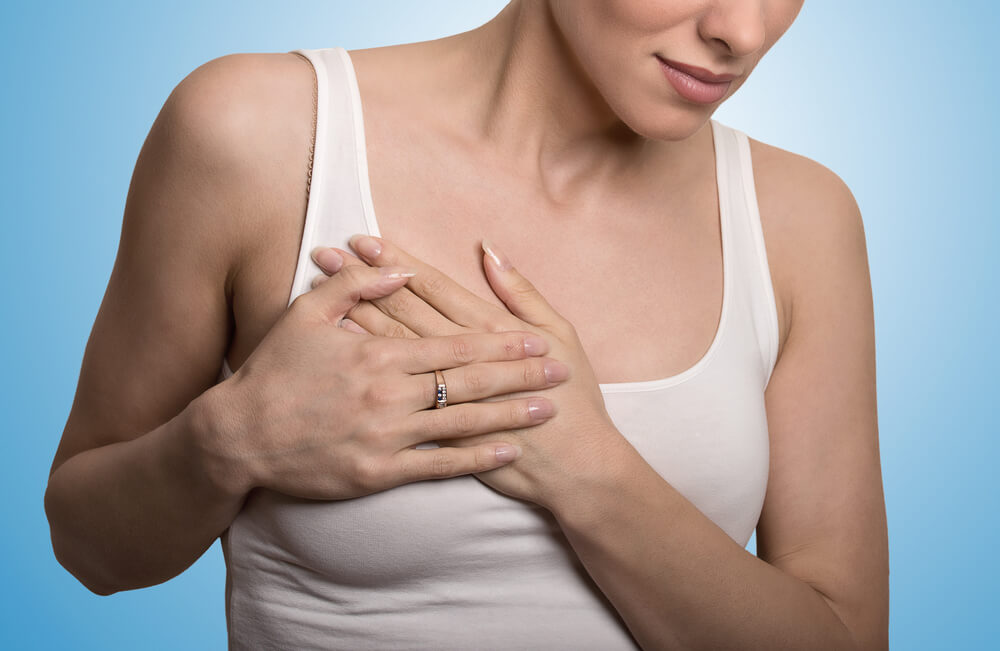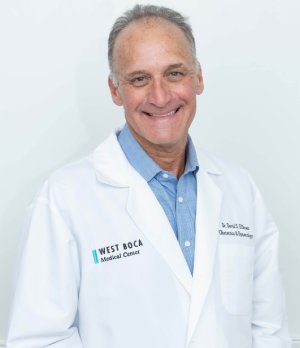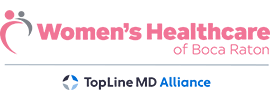Disclaimer: Please note that this blog is for educational purposes only, it includes general information on health-related topics. Women’s Healthcare of Boca Raton is giving medical advice to Patients Only. Follow this link to request an appointment with Dr. Ellman.
Many women are concerned about developing breast cancer, as some are at a greater risk than others, especially those with obesity and who drink a lot of alcohol.
Our women’s healthcare clinic in Boca Raton specializes in various areas, such as breast care, female reproductive health, and preventative health measures.
Read our article to learn more about breast cancer and how our OBGYN services can help reduce your risk of breast cancer and keep your breasts healthy.
Why is Breast Cancer Awareness Important?
The American Cancer Society states that breast cancer is one of the most common cancers in women in the U.S.
However, many people are getting diagnosed in their early stages, which is leading to positive outcomes. There are more than three million breast cancer survivors in the U.S, as many women are currently receiving treatment, and others have also completed their treatment.
That said, it’s important to tell your doctor right away if you notice any changes in your breast skin, as they can provide a treatment option.
What are The Signs and Symptoms of Breast Cancer?

The below are some signs and symptoms that a lot of women with breast cancer experience:
- Lumps in the breasts or armpits.
- Swelling.
- Persistent breast pain.
- Nipple discharge.
- Change in the breast size or shape.
- Nipple redness.
However, we don’t usually associate breast pain with cancer.
Who Is At Risk of Developing Breast Cancer?
Some women are more at risk of developing breast cancer than others.
Some risk factors include:
- Having dense breasts: These have less fatty tissue and more connective, making it hard to spot tumors on a mammogram.
- Radiation therapy: If you’ve had radiation therapy for other diseases, such as Hodgkin’s lymphoma before turning 30, breast cancer can develop later in life.
- Age: The risk increases in women advancing in age, as many patients receive a diagnosis after the age of 50.
- Reproductive history: If you started menstruating before the age of 12 and going through menopause after 55 can increase your risk of cancer.
How Can You Reduce Your Risk of Breast Cancer?
This section will describe how screening tests and medications can be beneficial for breast cancer prevention and how you can include lifestyle practices to keep your breasts healthy.
Screening For Breast Cancer Prevention
Our women’s healthcare clinic in Boca Raton offers various screening tests for your breast health, such as:
Mammogram
Mammograms produce X-ray images of the breasts, and they can detect cancers in their early stages, so the patient responds well to treatment before they develop symptoms.
The machine consists of plates that press the breasts firmly, which can be uncomfortable and painful for some women. That said, it is best to avoid getting a mammogram the week before you get your period or when you’re menstruating, as your breasts can be more sensitive during this period.
You should also avoid using deodorants or perfumes on the day of your appointment, as they can show up as white spots on the X-ray image.
Breast Magnetic Resonance Imaging (MRI)
Breast MRIs use radio waves and strong magnets to produce a detailed image of the inner breast tissue.
People who use OBGYN services for screening exams should get a yearly MRI scan and a mammogram, as mammograms can find cancers that we cannot spot on an MRI scan.
Lifestyle Practices

Now, we’ll also discuss how to prevent breast cancer by implementing some changes to your life.
At our women’s healthcare clinic, we recommend doing the following if you want to keep your breasts healthy:
- Limiting alcohol consumption: Drinking a lot of alcohol can increase the levels of estrogen that circulate in the body, increasing the risk of breast cancer. Therefore, it is best to have no more than one drink per day.
- Exercising regularly: The American Cancer Society believes that people should do at least two and a half to five hours of moderate-intensity or one hour to two and a half hours of dynamic-intensity activity every week. They can also do a combination of these exercises. As a result, the survival rate is higher in patients who exercise regularly than those who don’t.
- Following a healthy diet can improve overall health and wellness – if you eat foods with a lot of fats and calories, this can increase estrogen levels that circulate in your bloodstream. You can eat more fruits and vegetables, organic foods and limit your red meat intake.
- Avoiding smoking: Smoking increases the risk of cancers, stroke, and heart disease. It can also cause smelly breath and increase wrinkles.
- Breastfeeding: Studies show that if you breastfeed, you’re less likely to develop breast cancer. There is limited research about this, but it could be because estrogen levels are stable when you’re breastfeeding.
Book Your Appointment Today
Women with breast cancer experience various symptoms. These can include swelling, persistent pain, nipple discharge, and redness.
There’s no way to prevent breast cancer, but there are various screening tests you can opt for to help reduce your chance of developing cancer, including mammograms and MRIs.
You should also exercise regularly, follow a healthy diet and limit your alcohol consumption.
So, if you think you have a high risk of developing breast cancer and want to know how to prevent breast cancer, call our clinic at (561) 273-7364 or (561) 465-8834 to set an appointment with us. We will talk about your personal and medical history and discuss any preventive measures suitable for you.

Dr. Ellman is a Board Certified OBGYN who established his medical practice in South Florida over 25 years ago. His office, Women’s Healthcare of Boca Raton, is located in Boca Raton, Florida at West Boca Medical Center. Dr. Ellman attended Albert Einstein College of Medicine of Yeshiva University, where he received his medical degree. He went on to intern at Beth Israel Hospital in Boston- an affiliate of Harvard Medical School- and continued his residency at North Shore University Hospital in Manhasset, New York- an affiliate of Cornell Medical School.
Dr. Ellman has practiced Obstetrics and Gynecology in the Boca Raton area since 1995. In addition to treating patients at West Boca Hospital, Dr. Ellman also treats patients through his own private practice, Women’s Healthcare of Boca Raton, located on the West Boca Medical Campus.

